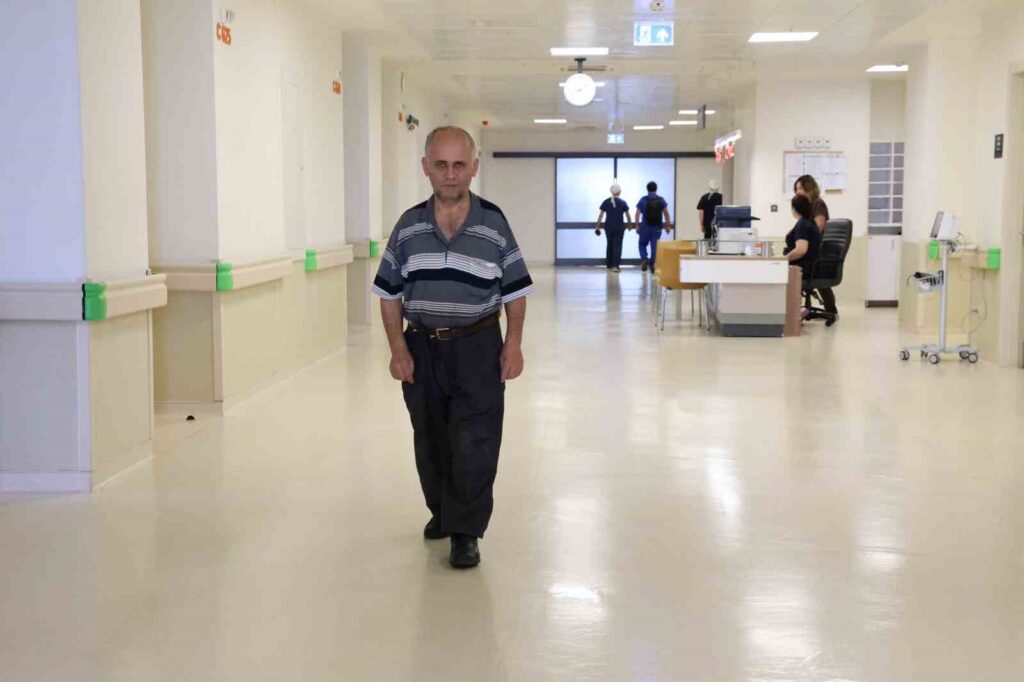Pay attention to middle ear inflammation during seasonal transitions.
Otitis media, also known as middle ear inflammation, is an infection of the cavity located behind the eardrum. Most cases of middle ear inflammation occur especially during the winter months and during the transition to spring. Daycare centers, kindergartens, and…

Otitis media, also known as middle ear inflammation, is an infection of the cavity located behind the eardrum. Most cases of middle ear inflammation occur especially during the winter months and the transition period to spring. In environments where children are cared for in groups, such as daycare and kindergarten, the risk of catching colds and ear infections generally increases. Ear, Nose, and Throat Specialist Dr. Natavan Ramazanzade provided information about middle ear inflammation.
Middle ear infections can occur due to various microorganisms such as viruses and bacteria. The risk of ear infections in children is higher than in adults. Babies and young children aged between 6 months and 2 years are the age group at risk for ear infections. Dr. Natavan Ramazanzade from Medicana International Istanbul Hospital stated that having a family history of middle ear inflammation increases the risk of getting it. “Some individuals have various risk factors that make them more prone to experiencing middle ear inflammation. Some of these factors may include family history, having a cold, being allergic, having certain chronic diseases, seasonal transitions, and children with cleft lip-palate problems,” he explained.
Weakness and loss of appetite should be considered
Dr. Natavan Ramazanzade noted that middle ear inflammation has various symptoms that may vary by age group. He listed common symptoms as follows: “Ear pain, especially a loss of appetite in small children, irritability, crying spells, sleep problems, often pulling at the ear while lying down, high fever, ear discharge, hearing problems, headaches, and balance issues can be mentioned.”
Recurrent middle ear inflammation can lead to hearing loss
Stating that the frequency of various complications may also increase in cases of recurrent middle ear inflammation, Dr. Natavan Ramazanzade said, “Hearing loss and perforation of the eardrum, especially the delay of speech and developmental delays in small children, the spread of infection to the bones surrounding the ear, and rarely to the brain and meninges (meningitis) can be among the conditions associated with frequently recurring middle ear infections.” Early diagnosis and appropriate treatment planning can often prevent complications and alleviate symptoms in the presence of an ear infection. He emphasized that if symptoms do not regress and persist for a long time, in the case of very severe ear pain in children under 6 months, if there is blood or pus coming from the ear, and in cases of hearing loss, one should seek medical attention without delay. Dr. Natavan Ramazanzade stated, “Ear infections usually resolve without intervention and often do not require medication. The treatment approach may involve alleviating symptoms such as severe pain. In some cases, antibiotic treatment targeting the infection may be initiated upon the doctor’s recommendation. Antibiotic treatment may be more commonly preferred in children under the age of two.”
Perforation of the eardrum is a serious complication
Dr. Natavan Ramazanzade from Medicana International Istanbul Hospital stated that one of the leading causes of middle ear inflammation is a condition known as serous otitis media, referred to as effusive middle ear inflammation. He explained, “In effusive middle ear inflammation, there is no infection caused by bacteria or viruses. This condition usually occurs when fluid continues to accumulate in the ear after the middle ear infection has healed or due to disorders related to the Eustachian tube. Due to effusive chronic middle ear infections, fluid continues to remain in the ear, especially increasing the risk of new ear infections in children. One of the unwanted complications of effusive middle ear inflammation is hearing loss. Another condition known as chronic suppurative middle ear inflammation includes ear infections that do not heal with standard treatment methods. This condition can lead to serious complications such as perforation of the eardrum.”
Dr. Natavan Ramazanzade emphasized that fluid accumulating in the middle ear may not improve despite the medications or antibiotics used. He stated, “In cases of continuously recurring middle ear infections, in middle ear infections that do not heal on their own or with medical treatment, and in patients with eardrum retraction and conductive hearing loss, a tube insertion surgery may be performed for middle ear inflammation.”







